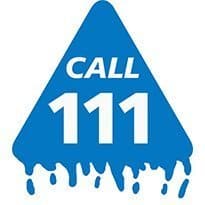GP leaders have called on the government to delay the launch of NHS 111, claiming patient safety is being sacrificed for a political deadline.
The new urgent care telephone triage service, manned primarily by non-clinical staff, is due to go-live nationwide on 1 April.
EHI reported last week that launches of the system around the country were being delayed or resulting in unacceptable wait times for patients. In the case of Manchester, the system reportedly went into “total meltdown” on its first night of operation.
GPC chair Dr Laurence Buckman, said the BMA had written to NHS Commissioning Board chief executive Sir David Nicholson and asked him to delay the launch of NHS 111 until the system was fully safe.
“We cannot sacrifice patient safety in order to meet a political deadline for the launch of a service that doesn’t work properly,” he said.
There has been widespread reports of patients being unable to get through to an operator or waiting hours before getting a call back with the health information they requested.
“In some areas, such as Greater Manchester, NHS 111 effectively crashed because it was unable to cope with the number of calls it was receiving,” Dr Buckman said.
“The chaotic mess now afflicting NHS 111 is not only placing strain on other already over-stretched parts of the NHS, such as the ambulance service, but is potentially placing patients at risk.”
The GPC’s NHS 111 spokesman Dr Peter Holden told EHI that NHS 111 was a case of senior managers selling the “emperor’s new clothes” to senior civil servants or ministers.
He said the BMA had repeatedly warned the government about risks associated with the planned national roll-out of the new health advice phone line.
Dr Holden said he told the Office of Government Commerce that the, “roll-out (of NHS 111) in one go would be foolish and over the bank holiday weekend would be foolish and the concept of lay call-handlers is unproven”.
He said there were 26 primary care trusts or PCT clusters where the system was not working and the government needed to start listening to experts’ concerns.
“We will not be letting this issue go, as it’s indicative of the way the NHS is being run now and the culture of fear and silence and it will not do, especially after the Francis report,” he added.
The Department of Health’s response to Robert Francis QC’s report into failures of care at Mid Staffordshire NHS Foundation Trust recommended a new statutory ‘duty of candour’ for GPs to report treatment or care that they believe has caused death or serious injury,
“Post Francis I say, ‘this is candour and if you don’t like candour – tough’,” Dr Holden said.
Dr Buckman said the BMA was particularly concerned that CCGs would find it difficult to cope with the worsening crisis gripping NHS 111 when they took responsibility for the service next week.
“CCGs will be taking over a service they did not commission or ask to be set up, at a pressurised time when they are also assuming responsibility for a raft of other services and budgets within the NHS,” Dr Buckman said.
“The government has also made it clear that CCGs will have to foot the bill for any financial costs, such as hiring staff to cover for NHS 111 failures.”
Michael Walker, Unison officer for NHS Direct, said: “It is clear that the new 111 service is still a dangerous and costly experiment with many IT problems aggravating the situation and making it unfit for purpose.
“The Department of Health should call a halt, until patients can be sure of being given the right advice by staff qualified to do just that.”

